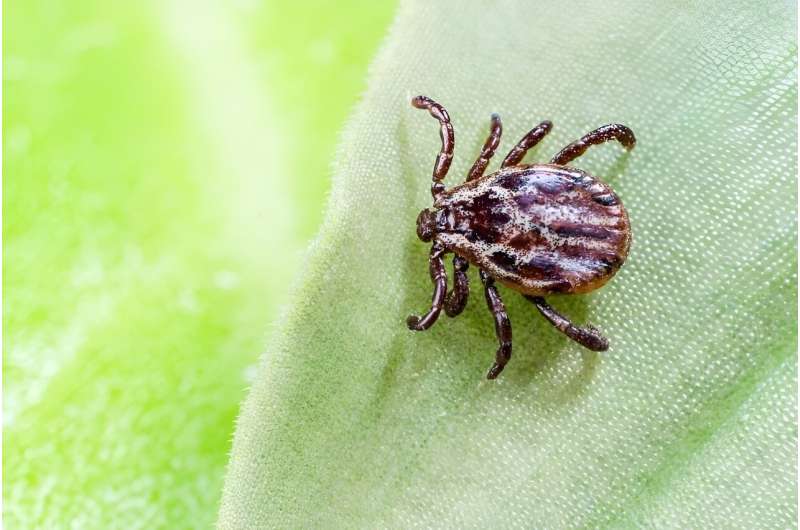This article has been reviewed according to Science X's editorial process and policies. Editors have highlighted the following attributes while ensuring the content's credibility:
fact-checked
peer-reviewed publication
reputable news agency
proofread
A malaria drug may combat tick-borne babesiosis

A malaria drug could help immune-compromised people who can't shake off babesiosis, a tick-borne parasitic infection, a new study says.
The drug tafenoquine helped cure four New England patients whose babesiosis infections weren't knocked out by the usual standard of care, researchers reported recently in the journal Clinical Infectious Diseases.
"Tafenoquine is going to make a huge difference, I think, in people who are severely immunocompromised," said study first author Dr. Peter Krause, a senior research scientist in the Yale School of Public Health Department of Epidemiology of Microbial Diseases.
Babesiosis is one of the most common tick-borne diseases in the world. In the United States, it's found in the Northeast and upper Midwest. It's caused by parasitic microorganisms, and was first reported in humans in 1957, researchers said in background notes.
As with malaria, the parasite invades red blood cells, which gave researchers the idea of trying tafenoquine against it. The infection typically causes fever, sweats, chills, headache, fatigue, weakness, and joint and muscle pain.
Babesiosis is typically treated using a straightforward two-drug combination of the antibiotics atovaquone and azithromycin, researchers said.
This combo "works in virtually every patient with mild disease," said study co-author Edouard Vannier, an assistant professor in the Tufts Medical Center's Division of Geographic Medicine and Infectious Diseases in Boston.
However, the babesiosis parasite has been developing resistance against this therapy, researchers said.
"In patients who are severely ill and severely immunocompromised, because resolution does not happen fast enough, the parasite has a chance to mutate," Vannier explained in a Yale news release. "Very often, atovaquone resistance is noted."
Faced with such resistance, patients can suffer a relapse into severe babesiosis. Among those who relapse, as many as one-fifth die, researchers said.
The patients in this new study had immune deficiencies, and they suffered dangerous relapses after the two-drug therapy didn't knock out the parasite.
Four out of five patients were cured after receiving tafenoquine, researchers report. In the successful cases, tafenoquine was administered along with other antibiotics or malaria treatments like atovaquone, proguanil, azithromycin and clindamycin. The fifth patient received tafenoquine on its own, and that failed to clear the infection.
Still, researchers found that tafenoquine overcame the resistance of the babesiosis parasite.
In the future, doctors might wind up testing a babesiosis patient to see which specific resistances their parasites have developed, and then choosing appropriate drugs to counter them, Vannier said.
"Testing for mutations is the future of treating these patients and opens the door to personalized medicine," Vannier said. "The whole idea is to tailor the therapy to the patient."
More information: Peter J Krause et al, Tafenoquine for Relapsing Babesiosis: A Case Series, Clinical Infectious Diseases (2024). DOI: 10.1093/cid/ciae238
The U.S. Centers for Disease Control and Prevention has more about babesiosis.
© 2024 HealthDay. All rights reserved.





















